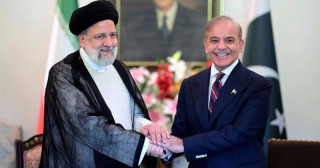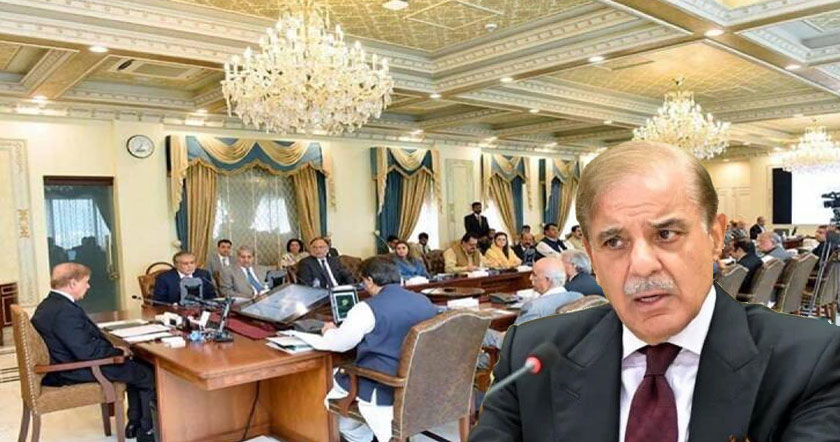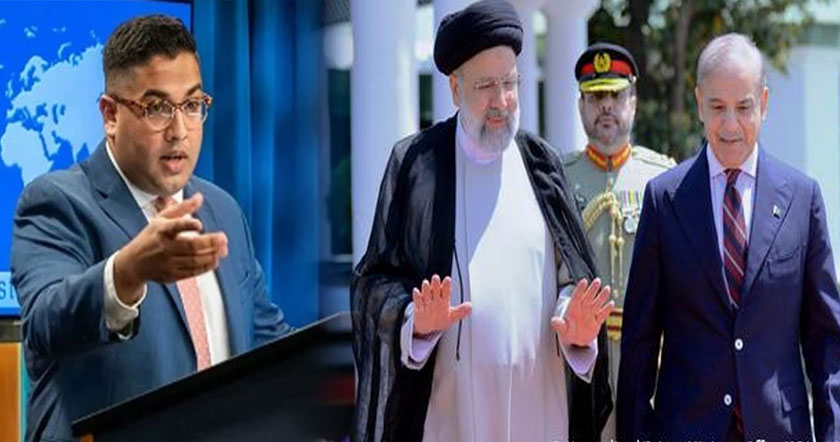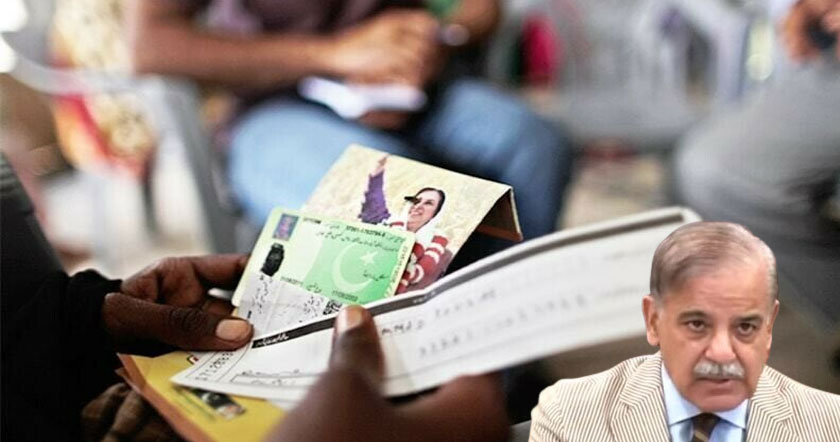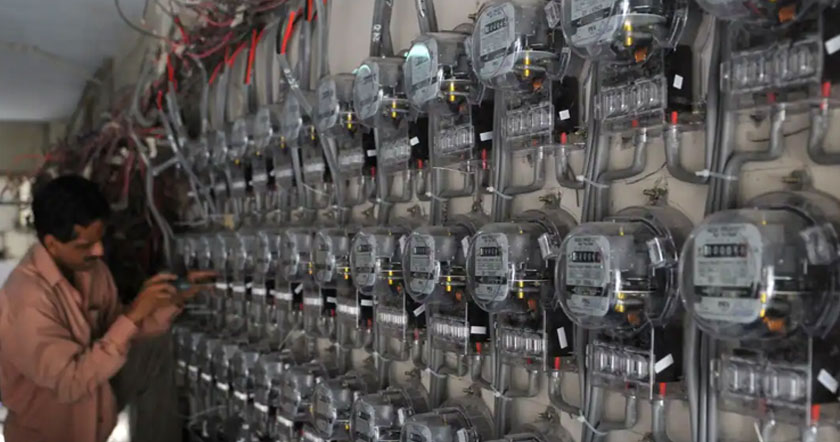LAHORE: Pakistan needs to adopt a targeted and value chain-based approach that focuses on high growth sectors and key elements of the recruitment value chain, in order to adjust its labour force in Gulf countries.
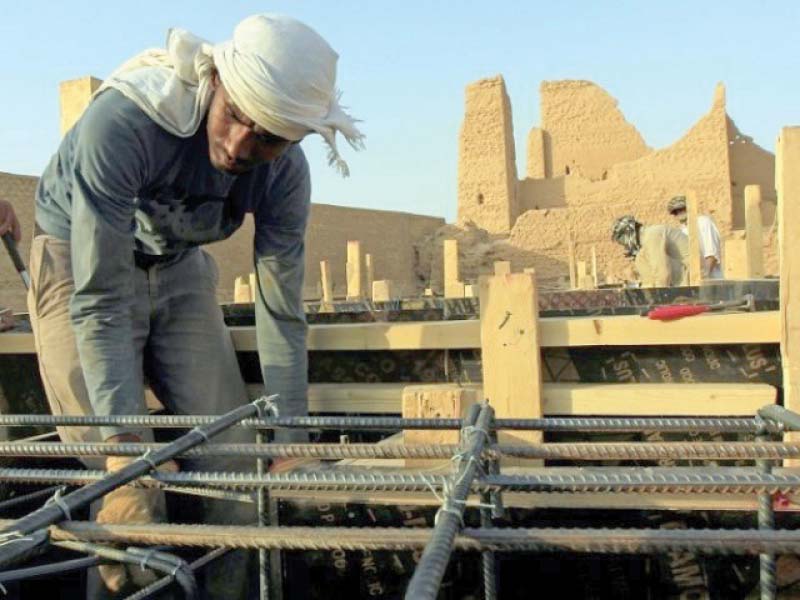
This would allow Pakistan to fill additional one and a half million available positions, in countries like the Kingdom of Saudi Arabia, the United Arab Emirates, Qatar, Kuwait, Oman and Bahrain, over five years. It would also allow the workers to earn up to $800 million in annual incremental remittances, said a study conducted by Punjab Skills Development Fund.
The study identified four key trends, taking place in gulf countries, along with three potential areas of special consideration for Pakistani government, as well as its workforce, to seize their growth projections and the value of potential remittances.
Since remittances are an important contributor of the country’s economy, the incumbent government is also focusing on Gulf States and is trying to fix things for local workforce to adjust there. This will create employment opportunities for Pakistanis and the government will attain some figures to support its manifesto of providing job opportunities.
Currently, over 25 million foreign workers are working in these gulf nations, out of which roughly three million are Pakistanis.
Additionally, the inflow of foreign exchange, in shape of remittances, can reduce the current account deficit. As per the study, remittances also help in boosting the gross domestic product (GDP) as the purchasing power of locals increases manifold due to such foreign currency inflows.
Pakistan managed to secure $19.62 billion in remittances during 2017-18; whereas, in the first seven months of the current fiscal year, the country received $14.4 billion. More than half of these remittances came from Saudi Arabia, the UAE and other gulf countries. The 2017-18 figures also account for almost 36% of the current account receipts, much higher than 12.2% in India and 1.6% in China.
Keeping in view the above key tendencies, the report emphasises focus on ‘greater growth in emerging sectors’, as trading activities in traditional sectors, like oil and gas, are already slowing down. Since it is hard to predict long-term oil prices, there is recognition among experts that spending growth in O&M and construction sectors for the past 5-10 years will not carry into the future.
However, the declining oil prices have accelerated Gulf nation’s efforts to move their economies away from heavy reliance on oil revenues and are in a process of positioning themselves as hubs of religious, sports and business tourism countries.
This puts retail, hospitality and tourism, along with healthcare areas, as the ‘emerging sectors’ for Gulf nations and the report puts special emphasis on Pakistani labour force to enhance their skills in these three sectors.
Nevertheless, construction is likely to remain on top when it comes to job opportunities in the next few years. The report stated that over eight million new jobs and roles will need to be filled within the construction sector.
Services and hospitality sectors will remain the second and third sectors. These sectors are likely to grow in future. Nearly four million positions in services, including drivers and workers, and over 2.5 million positions in the hospitality sector will open up in the next few years.
The report also suggests Pakistani workforce to enhance its abilities, expertise to qualify for executive jobs. It simultaneously focuses on labour class to attain a significant degree of professionalism.
“Currently, Pakistani representation is low in emerging sectors, especially when compared to nationalities like the Philippines, which by some estimates fill over 40% of the roles in these sectors. Part of the reason is that Pakistani talent is often perceived to be unsuitable for these sectors based on cultural and intangible factors such as soft-skills and attitude.”
The report further stated that while Pakistanis work and even thrive in traditional sectors in gulf nations, it was mostly because of their own efforts that they succeeded despite the absence of institutions that train and place talent in these roles.
“The challenge for Pakistan over the next five to ten years is to build the institutional infrastructure needed to make county as preferred source of talent for employers in emerging service sectors.”
Source

This would allow Pakistan to fill additional one and a half million available positions, in countries like the Kingdom of Saudi Arabia, the United Arab Emirates, Qatar, Kuwait, Oman and Bahrain, over five years. It would also allow the workers to earn up to $800 million in annual incremental remittances, said a study conducted by Punjab Skills Development Fund.
The study identified four key trends, taking place in gulf countries, along with three potential areas of special consideration for Pakistani government, as well as its workforce, to seize their growth projections and the value of potential remittances.
Since remittances are an important contributor of the country’s economy, the incumbent government is also focusing on Gulf States and is trying to fix things for local workforce to adjust there. This will create employment opportunities for Pakistanis and the government will attain some figures to support its manifesto of providing job opportunities.
Currently, over 25 million foreign workers are working in these gulf nations, out of which roughly three million are Pakistanis.
Additionally, the inflow of foreign exchange, in shape of remittances, can reduce the current account deficit. As per the study, remittances also help in boosting the gross domestic product (GDP) as the purchasing power of locals increases manifold due to such foreign currency inflows.
Pakistan managed to secure $19.62 billion in remittances during 2017-18; whereas, in the first seven months of the current fiscal year, the country received $14.4 billion. More than half of these remittances came from Saudi Arabia, the UAE and other gulf countries. The 2017-18 figures also account for almost 36% of the current account receipts, much higher than 12.2% in India and 1.6% in China.
Keeping in view the above key tendencies, the report emphasises focus on ‘greater growth in emerging sectors’, as trading activities in traditional sectors, like oil and gas, are already slowing down. Since it is hard to predict long-term oil prices, there is recognition among experts that spending growth in O&M and construction sectors for the past 5-10 years will not carry into the future.
However, the declining oil prices have accelerated Gulf nation’s efforts to move their economies away from heavy reliance on oil revenues and are in a process of positioning themselves as hubs of religious, sports and business tourism countries.
This puts retail, hospitality and tourism, along with healthcare areas, as the ‘emerging sectors’ for Gulf nations and the report puts special emphasis on Pakistani labour force to enhance their skills in these three sectors.
Nevertheless, construction is likely to remain on top when it comes to job opportunities in the next few years. The report stated that over eight million new jobs and roles will need to be filled within the construction sector.
Services and hospitality sectors will remain the second and third sectors. These sectors are likely to grow in future. Nearly four million positions in services, including drivers and workers, and over 2.5 million positions in the hospitality sector will open up in the next few years.
The report also suggests Pakistani workforce to enhance its abilities, expertise to qualify for executive jobs. It simultaneously focuses on labour class to attain a significant degree of professionalism.
“Currently, Pakistani representation is low in emerging sectors, especially when compared to nationalities like the Philippines, which by some estimates fill over 40% of the roles in these sectors. Part of the reason is that Pakistani talent is often perceived to be unsuitable for these sectors based on cultural and intangible factors such as soft-skills and attitude.”
The report further stated that while Pakistanis work and even thrive in traditional sectors in gulf nations, it was mostly because of their own efforts that they succeeded despite the absence of institutions that train and place talent in these roles.
“The challenge for Pakistan over the next five to ten years is to build the institutional infrastructure needed to make county as preferred source of talent for employers in emerging service sectors.”
Source








